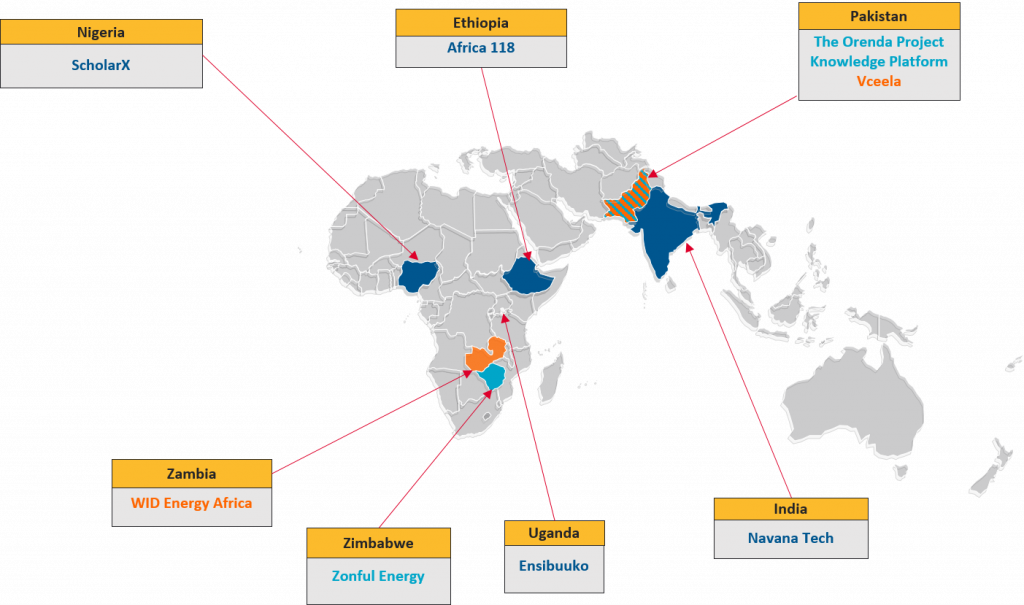Nigeria’s ScholarX, a Digital learning provider has been selected among the grantees for the GSMA Innovation Fund for Mobile Internet Adoption and Digital Inclusion.
The fund was launched in April 2020 to create opportunities for innovative start-ups and SMEs to address the key barriers of accessibility, affordability, digital skills, and safety and security that prevent many from connecting to mobile internet.
This year, GSMA received a total of 598 applications from start-ups and SMEs in 44 countries across the world.
After a rigorous evaluation process, 9 grantees were selected for the fund. 5 of the nine selected startups were from Africa while the remaining four are in Asia.
The grantees from Africa include:
- ScholarX (Nigeria), a Digital learning provider
- Africa 118 (Ethiopia), a Digital marketing service provider for African SMEs
- Ensibuuko (Uganda), a Tech solutions provider to savings and loans org.
- WidEnergy Africa Ltd (Zambia), a community shop energy, water and connectivity
- Zonful Energy (Zimbabwe), a Pay-As-You-Go solar energy systems provider


The startups from Asia include:
- Knowledge Platform (Pakistan), a Digital learning provider
- The Orenda Project (Pakistan), a Digital learning provider
- Vceela (Pakistan), a Online platform for artisans in Pakistan
- Navana Tech (India), Conversational AI provider for low-literate, vernacular speaking, mobile-first internet users
Grants and Support over 18 Months
SchloarX and other winners will be awarded an equity-free grant of between £100,000 to £250,000 as part of the GSMA Innovation Fund. The fund is provided by the Foreign, Commonwealth and Development Office (FCDO).
They will also receive GSMA full support to help them realise their full socio-economic and commercial potential over the next 18 months.
The support will include promoting partnerships between mobile operators and the winners to increase the reach of mobile internet to new first time users.
Secondly, it will provide technical assistance on topics such as digital skills training, how to reach more female customers and addressing handset affordability etc.
Then, it will provide tools, templates and specialist advisory support to help improve the offering and evidence outcome.
Others support include help with scalability and sustainability planning as well as added opportunities to promote and showcase the work.
In summary
Although access to mobile internet is driving digital inclusion, there is still a ‘usage gap’. There are over 3.4 billion people living in areas covered by mobile broadband networks but are not using mobile internet services.
GSMA is using the Innovation Fund to help identify and boost innovative solutions addressing the barriers to mobile internet adoption and usage.







